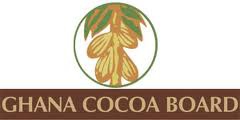…signs US$1.2bn syndicated loan
The cocoa industry regulator Cocobod has been charged to improve farmer education and fertiliser distribution to raise the crop’s output, as it remains Ghana’s leading agricultural export.
The education of farmers, which is infrequent and often limited to a few, should be expanded using channels such as the Information Services Department, the National Service Secretariat and the media, said Nana Amo Adade Boamah, Managing Director of Cocoa Merchants, a licenced buying company. Such efforts will augment the education provided by the buying companies, he added.
He also urged Cocobod to mandate fertiliser-importing companies to build regional warehouses to ease farmers’ access to subsidised fertiliser and create more employment in the agro-chemicals industry.
Cocobod provides fertiliser subsidies to farmers among other incentives to boost production of the crop. Output peaked at one million tonnes in the 2010/11 season, but has since dropped to its normal level of around 800,000 tonnes.
“Cocobod should be in the forefront of development within the cocoa industry if it is to be seen as a really effective regulator,” said Nana Boamah in an interview with the B&FT during a ceremony in Kumasi to reward workers of his company.
On Friday, Cocobod announced that it has signed a US$1.2billion syndicated loan from international banks for 2013/14 cocoa crop purchases as against US$1.5billion for 2012/13, according to a report by Reuters.
The credit facility between Cocobod and a consortium of international and local banks, led by French lender Societe General, will enable Cocobod to raise funds to purchase 830,000 tonnes of cocoa from farmers for the season.
Ghana is the world's second-largest cocoa exporter after Ivory Coast, and Cocobod aims to raise production to an average of 1 million tonnes annually from 800,000 tonnes through improved farming methods and better incentives.
The loan, which was over-subscribed as in previous years, is the largest soft commodity deal in sub-Saharan Africa, Cocobod spokesman Noah Amenyah said. “It is aimed at ensuring that cocoa farmers in Ghana are paid fairly and promptly for their cocoa produce," he said. The new season is expected to begin early next month with the announcement of a new producer price for the crop.
Lead arrangers of the loan include Bank of Tokyo-Mitsubishi UFJ, Ltd.; Rand Merchant Bank; Crédit Agricole Corporate & Investment Banking; Nedbank; and Ghana International Bank Plc, UK.
World cocoa prices are expected to rally amid concerns about unfavourable weather conditions in the major producing countries, as prices move toward US$2,300 per tonne by year-end, said the Bank of Ghana (BoG) last week.
Cocobod’s annual syndicated loan is a critical source of foreign exchange reserves for the BoG, which sells cedis to the regulator in exchange for dollars.
Business News of Wednesday, 25 September 2013
Source: B&FT
Cocobod charged to boost farmer education













